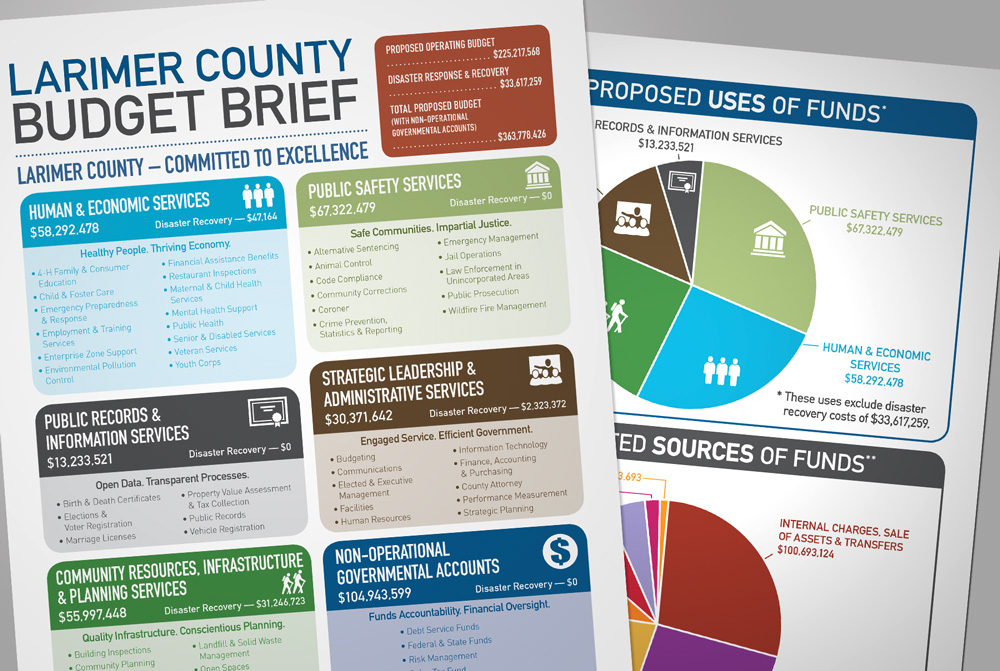![]()
For many local governments, the end of the year can only mean one thing: Budget Season. And that means you need to figure out how to engage your community in a process that is often complex, occasionally boring, and extraordinarily important.
Regardless of whether you’re in the throes of budgeting, or you have a reprieve for another six months, here are a few guidelines to give your budget the makeover it needs to become more understandable and engaging to the public.
It’s About the Services Provided
Endless Excel files filled with formulas, pivot tables, and statistical functions make for smart financial planning, but are pretty brutal for most readers. But here’s the good news: government services, you know, the things that are funded by all those boring budget numbers, now those are pretty cool. Education, infrastructure, recreation, open space, public safety, economic development, arts – these are the things people really care about.
At its core, a budget is a blueprint for providing public services. The numbers are simply the mechanism to fund those services. Shift the conversation to what you can accomplish with this budget, not the budget itself.
 Simplify But Don’t Condescend
Simplify But Don’t Condescend
Budgets of governments are complex. But in order to gather informed feedback, your community needs to have an understanding of this complexity. Creating a foundation of knowledge about where the money comes from and how it’s currently spent provides context for quality discussions about priorities. You’re goal is to simplify, but not to speak down to your residents. Use language that’s free from jargon and acronyms. Better yet, limit the narrative and use graphics to tell the story.
Set the Tone: Be Open and Honest
If we’re honest, there are some things that are up for discussion and some that are not. Be transparent about where input will be used and what is already predetermined. In all your materials and communication, set the right tone. Help people understand that budgets are an exercise in prioritization, choices and trade-offs.
Gather Feedback
Now it’s time to launch the tools to garner feedback. Whether through online forums, public meetings, email, online forms, social media, or otherwise, make sure you are gathering feedback in a manner that is convenient for and targeted to your constituents. Offer multiple ways to participate. And don’t forget to share how the feedback was used once the process comes to an end.
Engaging residents in your budgeting process, although at times challenging, will build understanding and interaction with your community – and ultimately make it a better place.
Kim Newcomer is part of the GovLoop Featured Blogger program, where we feature blog posts by government voices from all across the country (and world!). To see more Featured Blogger posts, click here.





Leave a Reply
You must be logged in to post a comment.